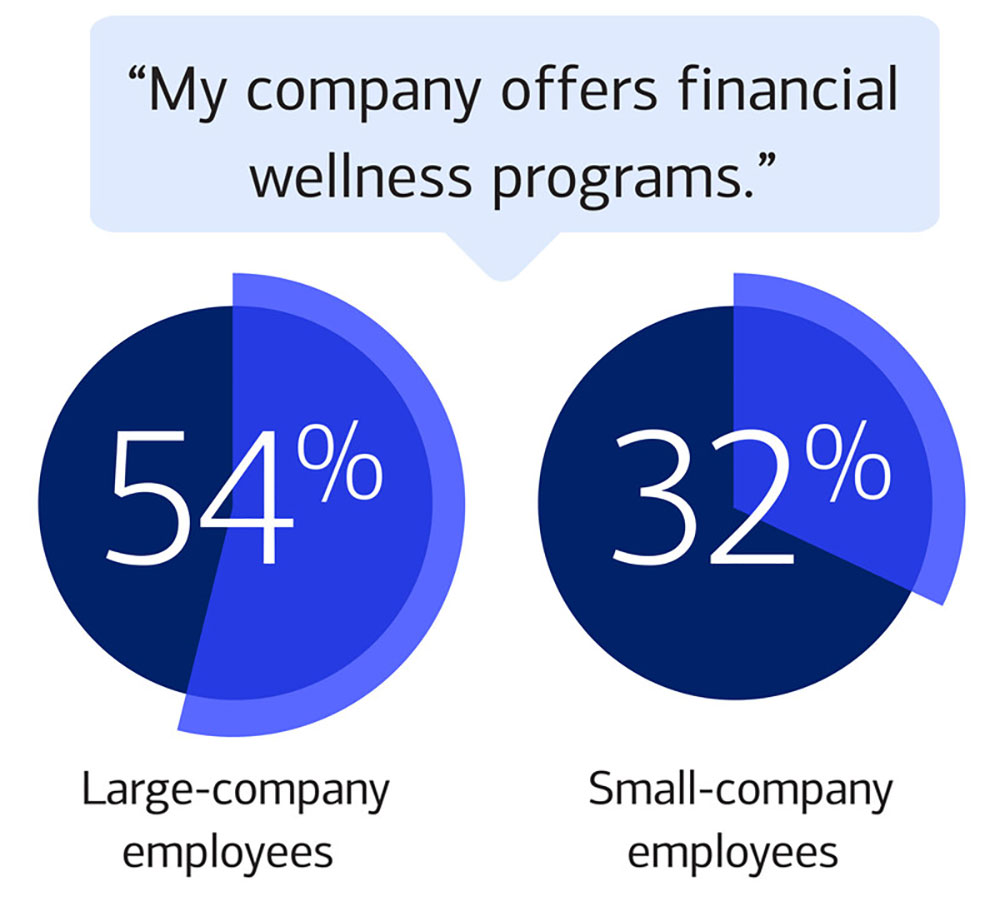A new report from Bank of America reveals a significant shift in employee attitudes towards financial wellness, with nearly 7 in 10 workers remaining optimistic about their financial futures. However, many are increasingly seeking guidance regarding long-term savings and immediate personal finance management, prompted by rising living costs and ongoing inflation.
The 2025 Workplace Benefits Report highlights that twice as many American workers are turning to their employers for support with near-term financial needs compared to two years ago. In 2025, 26% of the workforce seeks assistance in areas such as emergency savings, debt repayment, and general financial wellness, up from just 13% in 2023.
“The modern employee wants help with their broader financial goals,” stated Lorna Sabbia, Head of Workplace Benefits at Bank of America. “Employers should consider additional resources to support their workforce in ways that bolster their long-term goals while also helping them tackle short-term challenges.”
Key findings from the report indicate that other financial wellness resources employees desire include retirement planning education (36%), strategies for generating income in retirement (33%), and developing essential financial skills (33%).
The report, based on surveys of nearly 1,000 employees and 800 employers, reveals that financial wellness benefits are highly valued. More than 80% of employers recognize that offering financial wellness resources positively influences job satisfaction, productivity, and talent attraction. Yet, only about half (54%) of larger employers provide such programs, compared to a mere 32% of smaller companies.
Furthermore, workplace benefits play a critical role in talent retention, with 24% of employees having recently left or considering leaving their job due to insufficient workplace benefits, an increase from 15% in 2023.

Additional findings include:
- Emergency Savings: Building savings for unexpected expenses is the second-most important financial goal for employees, below retirement savings. Notably, 53% of employees reported not meeting their emergency savings goals, with a higher percentage of women (62%) struggling compared to men (44%).
- Personal Debt: Nearly half (45%) of employees attribute their lack of emergency savings to focusing on repaying debt. A staggering 85% of employees carry some form of personal debt, with 58% holding credit card debt. Despite this, less than a third of companies offer assistance with debt counseling outside of student loans, although more are considering such offerings.
- Retirement Readiness: While 67% of employees feel confident about reaching their desired retirement lifestyle, confidence levels vary, with only 59% of women feeling assured compared to 72% of men. Additionally, 49% of employees wish they had started saving for retirement earlier.
- Equity Awards: A substantial 60% of employers indicate that equity awards help attract and retain talent, with nearly half of employees expressing interest in such offerings in the coming years. Among employers who currently provide equity awards, 66% report an increase in the number of employees receiving them, and 83% are considering expanding these benefits.
“Some companies are evolving their financial benefits to keep up with the needs of their employees, while others remain focused on traditional benefits alone—such as retirement plans and health insurance,” remarked Kai Walker, Head of Retirement Research and Insights at Bank of America. “Financial wellness programs, equity awards, debt assistance, and caregiver support can all help attract and retain top talent.”
This report underscores the growing importance of comprehensive financial wellness benefits in the workplace, as employees navigate their financial present and future.






